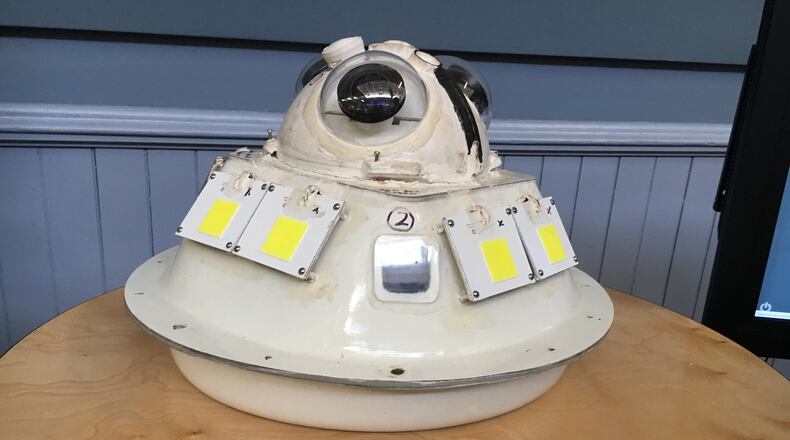MORE: Hamilton family donates land to neighborhood for new park
“There’s noxious gases trying to steal away your breath, and acids literally dripping from the roof,” said Lee, whose company recently participated in the Hamilton-based Pipeline H2O program for water-technology companies.
“I should point out this is one of the most hazardous activities a utility undertakes,” Lee said.
With sewers in many cities reaching a century old and deteriorating — spilling sewage into the environment or allowing water from storms to flow into them, overwhelming sewer systems and sewage-treatment facilities — fixing the pipelines is increasingly important.
GeoInteractive was part of Pipeline H2O’s second group to participate in a five-month program of working with mentors, developing business plans, honing products and pitches about them, and most importantly, connecting with clients.
MORE: This Hamilton H2O Innovator is reinventing bottled water to be eco-friendly
“There’s a $3 billion-a-year sewer-inspection market here in the U.S.,” Lee told an audience during a recent presentation of Pipeline H2O products in Cincinnati’s Over-the-Rhine neighborhood. “And we plan to take over that.”
Of the six businesses that were part of Pipeline’s Class of 2018, GeoInteractive was one of two that won $25,000 grants based on the judgments of the businesses themselves.
The company uses advanced untethered floating “Sewer Scout” robots, computer vision and artificial intelligence, with software that records damaged areas so crews can monitor the situation from their offices.
Cameras record 360-degree footage of pipes’ interiors, automatically identifying and recording features and geo-locate them on a map, so sewer utilities can prioritize places most in need of repair.
BUTLER COUNTY BUSINESS: Here’s what opened, closed and announced plans in May
The company recently received a letter of interest from the Metropolitan Sewer District of Greater Cincinnati, which will receive one sewer scout this year, and GeoInteractive also will perform a pilot program in Chicago in coming months, Lee said.
Next year, the company plans to manufacture 10 scouts in the U.S., with another 50 in 2020, Lee said. The company also plans to demonstrate its products and services to the U.S. Environmental Protection Agency. After that, “the EPA will educate the market for us,” said Lee, who plans to eventually open an office in this country.
At first, the location will be in Over-the-Rhine, but Lee noted the company has interest in its products from Dayton and a combination of the city of Hamilton and Butler County, perhaps indicating an eventual office north of Cincinnati.
“They’re talking about continuing their operations in the region,” said Rahul Bawa, chairman of the board of Pipeline H2O. He also noted that “every single one of this (Class of 2018) cohort has a customer that came out of Pipeline.”
About the Author
